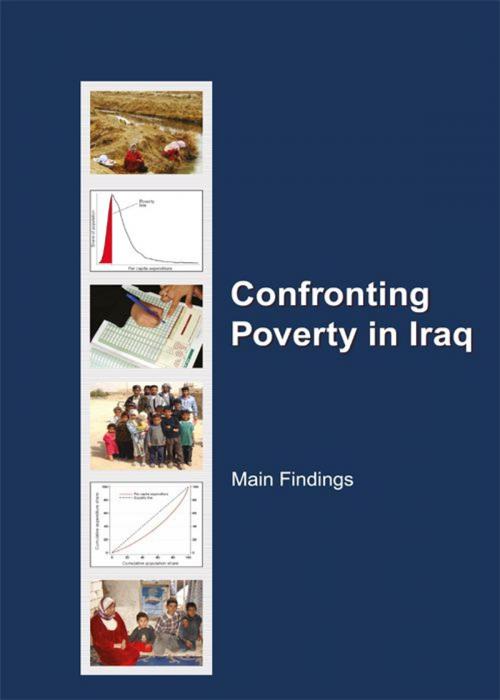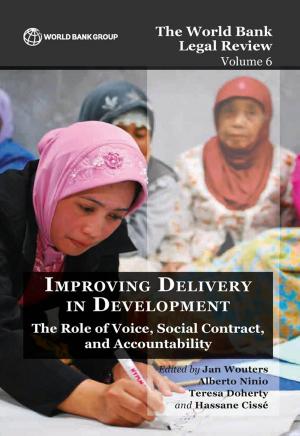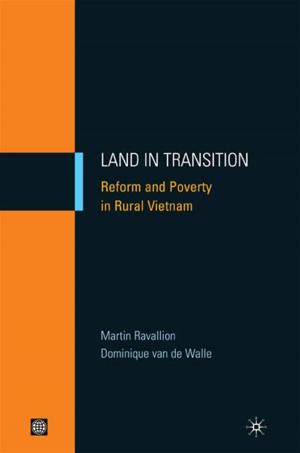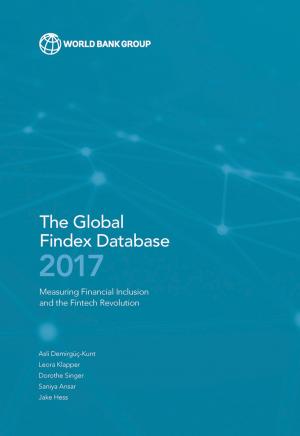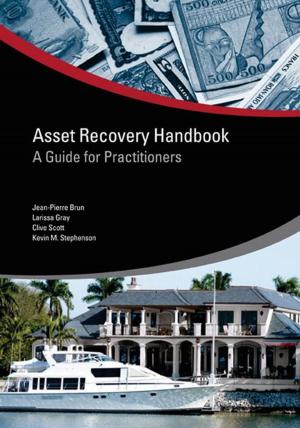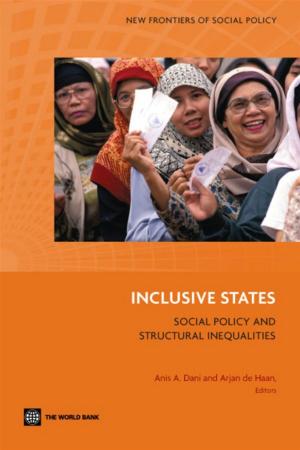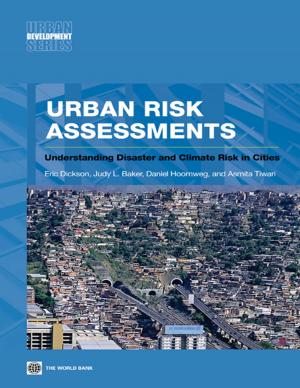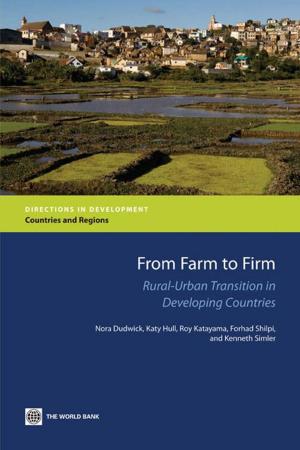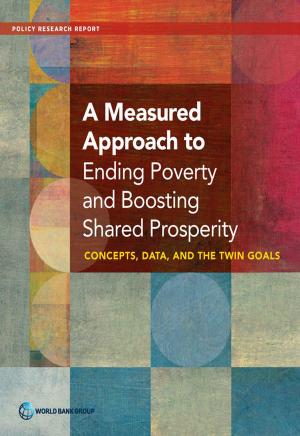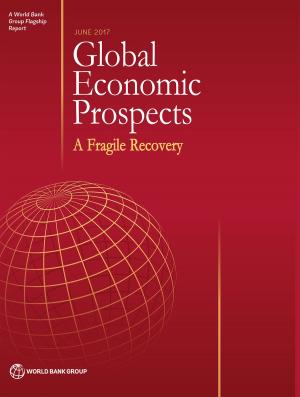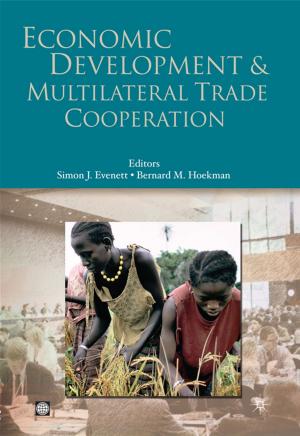Confronting Poverty in Iraq: Main Findings
Nonfiction, Social & Cultural Studies, Social Science, Sociology| Author: | World Bank ; Iraq Poverty Reduction Strategy High Committee | ISBN: | 9780821385630 |
| Publisher: | World Bank | Publication: | January 6, 2011 |
| Imprint: | Language: | English |
| Author: | World Bank ; Iraq Poverty Reduction Strategy High Committee |
| ISBN: | 9780821385630 |
| Publisher: | World Bank |
| Publication: | January 6, 2011 |
| Imprint: | |
| Language: | English |
This report provides the most comprehensive and rigorous analysis of Iraqi income and expenditure in several decades. The report makes extensive use of the Iraq Household Socio-Economic Survey the first nationwide income and expenditure survey since 1988. IHSES data is complemented income and expenditure data from a wide range of other measures of living standards allowing us to analyze living standards in a holistic way. The analysis presented here was performed with two main goalsâ€first to inform the Government’s Poverty Reduction Strategy; and second to serve as a baseline for future assessments of changes in living standards and the identification of critical issues for deeper examination. Iraqi living standards have two unusual characteristics. First they have fallen over the past generation. Second they feature surprisingly little inequality. These characteristics are both rooted in Iraq’s recent history of authoritarian government war military occupation insurgency and civil strife leading to infrastructure destruction and population displacement. There have been few opportunities for individuals to prosper from professional or entrepreneurial activities. Decades of neglected investment have resulted in deterioration of social services and economic infrastructure. Consequently individuals have lacked capabilities to prosper and an investment climate conducive to prosperity. School enrollment and life expectancy have declined. Extremely low returns to education reflect the combination of poor educational quality and lack of employment opportunities. In terms of economic infrastructure access to reliable electricity and water and even access to paved roads are low are further reflections of decades of neglect. While the upper end of the distribution has been pulled down by a lack of opportunities the lower end has been supported by direct government provision of food. The Public Distribution System (PDS) provides 85 percent of food needs. While PDS has been useful as a safety net for the poor and the vulnerable the system is expensive inefficient and fiscally risky. Indeed PDS food rations account for a far greater share of public spending than does education or health. Going forward Iraq faces two main challenges. First although Iraq does not have to develop from scratch it faces a formidable challenge in re-development. Second a shift by the Government is requiredâ€from direct provision of basic subsistence toward investment in human capacities. The Government can provide an enabling environment through investments in economic infrastructure and services to business and citizens thus allowing the population to make productive use of education and their own labor. Both challenges are now being taken up by the Poverty Reduction Strategy which articulates a detailed set of required actions and outlines priorities for government spending.
This report provides the most comprehensive and rigorous analysis of Iraqi income and expenditure in several decades. The report makes extensive use of the Iraq Household Socio-Economic Survey the first nationwide income and expenditure survey since 1988. IHSES data is complemented income and expenditure data from a wide range of other measures of living standards allowing us to analyze living standards in a holistic way. The analysis presented here was performed with two main goalsâ€first to inform the Government’s Poverty Reduction Strategy; and second to serve as a baseline for future assessments of changes in living standards and the identification of critical issues for deeper examination. Iraqi living standards have two unusual characteristics. First they have fallen over the past generation. Second they feature surprisingly little inequality. These characteristics are both rooted in Iraq’s recent history of authoritarian government war military occupation insurgency and civil strife leading to infrastructure destruction and population displacement. There have been few opportunities for individuals to prosper from professional or entrepreneurial activities. Decades of neglected investment have resulted in deterioration of social services and economic infrastructure. Consequently individuals have lacked capabilities to prosper and an investment climate conducive to prosperity. School enrollment and life expectancy have declined. Extremely low returns to education reflect the combination of poor educational quality and lack of employment opportunities. In terms of economic infrastructure access to reliable electricity and water and even access to paved roads are low are further reflections of decades of neglect. While the upper end of the distribution has been pulled down by a lack of opportunities the lower end has been supported by direct government provision of food. The Public Distribution System (PDS) provides 85 percent of food needs. While PDS has been useful as a safety net for the poor and the vulnerable the system is expensive inefficient and fiscally risky. Indeed PDS food rations account for a far greater share of public spending than does education or health. Going forward Iraq faces two main challenges. First although Iraq does not have to develop from scratch it faces a formidable challenge in re-development. Second a shift by the Government is requiredâ€from direct provision of basic subsistence toward investment in human capacities. The Government can provide an enabling environment through investments in economic infrastructure and services to business and citizens thus allowing the population to make productive use of education and their own labor. Both challenges are now being taken up by the Poverty Reduction Strategy which articulates a detailed set of required actions and outlines priorities for government spending.
